Nehru vs Patel: Unity in Diversity
Let Narendra Modi too bring Nehru and Patel together in his vision for India
 Shashi Tharoor
Shashi Tharoor
 Shashi Tharoor
Shashi Tharoor
 |
15 Feb, 2018
|
15 Feb, 2018
/wp-content/uploads/2018/02/Unitydiversity1.jpg)
HISTORY, UNDER BJP rule, has developed a surprising tendency to dominate our national discourse. Not only has Indian history increasingly become ‘ground zero’ in the battle of narratives between Hindutvavadis and pluralists, it is being wielded as the BJP’s weapon of choice against the Congress.
Prime Minister’s Narendra Modi’s excoriating speech in the Lok Sabha on February 7th, in which he blamed the Congress Party and Jawaharlal Nehru for the Partition of India and the continuing Kashmir dispute, is the latest example of the ruling party’s invocation of historical facts to debate the political present. In the process, Modi exalted his own hero, Sardar Patel, as the man who, had he been put in charge of the country, would have prevented Partition and stopped the loss of territory in Kashmir.
This is not altogether surprising. For some years now the BJP—which, led by the Prime Minister, has sought to drape itself in a proprietary mantle of nationalism—has been seeking to appropriate the freedom struggle for itself. The complication is that the political cause to which the BJP is heir—embodied in the Jana Sangh, the RSS, and the Hindutva movement—had no prominent freedom fighter of its own during the nationalist movement. The BJP traces its origin to leaders who were not particularly active during the struggle for independence.
The lack of direct sources of inspiration means that people like Modi have to look for role models elsewhere. Modi’s favourite instrument is the doughty Congressman Sardar Vallabhbhai Patel, one of India’s most respected Founding Fathers, the original ‘Iron Man’ of India and a Gujarati to boot. Adopting Patel as his hero and denigrating Nehru serves two purposes: it places an authentic freedom fighter on the BJP’s side in a contemporary retelling of history and seeks to push the Congress, led by a Nehru scion, on the defensive.
The process had already begun, lest we forget, when then Chief Minister Modi moved aggressively to lay claim to the legacy of Patel before the 2014 General Election. In his quest to garb himself in a more distinguished lineage than his party can ordinarily lay claim to, Modi called on farmers across India to donate iron from their ploughs to construct a giant 550-foot statue of the Iron Man in his state, which would be by far the largest statue in the world, dwarfing the Statue of Liberty. But it will be less of a monument to the modest Gandhian it ostensibly honours than an embodiment of the overweening ambitions of its builder. (Typically, the call to collect ploughshares has been quietly shelved; reports indicate that the statue is being cast instead in a foundry in China.)
Modi’s motives are easy to divine. His own image had been tarnished by the 2002 communal massacre in Gujarat when he was Chief Minister. Identifying himself with Patel (who is portrayed as the leader who stood up for the nation’s Hindus during the horrors of Partition and was firm on issues like Kashmir) is an attempt at character-building by association—portraying Modi himself as an embodiment of the tough, decisive man of action that Patel was, rather than the destructive bigot his enemies decry.
It helps that Patel is widely admired for his extraordinary role in forging a united India through the merger of princely states with the Union, an exercise that gave him an unchallenged standing as the Iron Man of India. Patel represents both a national appeal and a Gujarati origin that suits Modi. The Modi-as-latter-day- Patel message has been resonating well with many Gujaratis, who are proud to be reminded of a native son the nation looks up to, and with many of India’s urban middle-class, who see in Modi a strong leader to cut through the confusion and indecision of India’s messy democracy. Three years of ineffective governance has taken something of the sheen off that appeal, so the latest broadside in Parliament may well signal a desperate attempt by the Prime Minister to squeeze contemporary political benefit over a historical dispute.
It is true, of course, that the two men had their differences, which neither kept particularly secret. Just before independence, Patel was privately scathing about Jawaharlal’s ‘acts of emotional insanity’ and ‘childlike innocence, which puts us all in great difficulties quite unexpectedly”. Nehru, in turn, could not have been unconscious of the fact that the older man (Patel was 14 years his senior) was seen by many Congressmen as more deserving of the country’s leadership than the mercurial Jawaharlal. Modi made an issue of the fact that Nehru was appointed despite this, but he omitted the equally important fact that it was a fellow Gujarati, Gandhiji himself, who made the choice, in which Patel acquiesced without demur.
In his quest to garb himself in a more distinguished lineage than his party can ordinarily lay claim to, Modi called on farmers across India to donate iron from their ploughs to construct a giant 550-foot statue of the Iron Man
But it was not true, scurrilous rumours notwithstanding, that Nehru had initially omitted Patel from the Cabinet list and had been obliged by Mountbatten to include him. On the contrary, Patel’s was always the first name on Nehru’s list. Nehru, in inviting Patel to serve as his deputy, called him “the strongest pillar of the Cabinet”. Patel replied: “My services will be at your disposal, I hope, for the rest of my life and you will have unquestioned loyalty and devotion from me in the cause for which no man in India has sacrificed as much as you have done. Our combination is unbreakable and therein lies our strength.” The Sardar’s assurances were sincere and their ‘combination’ was indispensable as Independent India consolidated its unity and found its feet. (Sadly, though, ‘the rest of my life’ that Patel alluded to would extend no more than another three years.)
Modi’s allegation that the Congress was responsible for Partition bizarrely echoes the views of some pro-Pakistani historians who seek to deflect the blame from the bigoted communal agenda of the separatist Muslim League, which demanded— and got—Partition. But his implying that Patel would not have permitted it is, to put it mildly, ahistorical. Far from being against Partition, Patel was seen even at the time as the principal advocate within the Congress of the view that it was better to let the League have its way. ‘My nine months in office [in the interim government],’ Patel himself wrote, ‘have completely disillusioned me regarding the supposed merits of the Cabinet Mission Plan. Except for a few honourable exceptions, Muslim officials from the top down to the chaprassis (peons) are working for the League. The communal veto given to the League in the Mission Plan would have blocked India’s progress at every stage. Whether we like it or not, de facto Pakistan already exists in the Punjab and Bengal. Under the circumstances, I would prefer a de jure Pakistan, which may make the League more responsible.’ He never changed his view. The noted historian S Irfan Habib quotes Patel as saying in 1949: “It is good that we have agreed to Partition in spite of all its evils; I have never repented my agreeing to Partition.”
MODI’S VEW OF history has always tended to be more self- serving than scholarly, an understandable enough failing in a politician. But his second argument in the Lok Sabha—that “all of Kashmir would have been India’s if Patel [instead of Nehru] had been allowed to become India’s first Prime Minister”—is utterly mystifying. It is convenient for the BJP leader to blame Nehru for the loss of a third of Kashmir to Pakistan, since he needs to divert attention from his own mismanagement of that troubled state. And since it is now an article of faith for his party to lament the fact that Nehru and not Patel became Prime Minister in 1947, it is necessary to project Patel as the man who would have prevented all of Independent India’s failures. But the facts, inconveniently enough, belie this claim.
Multiple sources concur that far from wanting to retain all of Kashmir within the Indian Union, Patel was inclined to give it away to Pakistan. This emerges clearly from the account of the Partition deliberations by the Sardar’s party colleague Maulana Abul Kalam Azad in his autobiographical India Wins Freedom. At a time when other major Congress leaders were resisting the British plan for India’s partition, the Sardar was willing to accept it. Nehru biographer MJ Akbar, now a member of Modi’s Council of Ministers, echoes this view. So do the books Demystifying Kashmir by political scientist Navnita Chadha Behera, and RSS leader HV Seshadri’s The Tragic Story of Partition. The Mahatma’s grandson, Rajmohan Gandhi, in his admiring biography Patel: A Life, describes Patel’s line of thinking: Kashmir could be swapped if Pakistan withdrew its claims to Junagadh and Hyderabad. He cites a speech by Patel at Bahauddin College in Junagadh on 11th November 1947, at which point the tiny Gujarati principality had already been merged into India. According to The Emergence of Pakistan, by Chaudhry Muhammad Ali, Patel’s exact words were: “We would agree to Kashmir if they agreed to Hyderabad.”
Since it is now an article of faith for his party to lament the fact that Nehru and not Patel became Prime Minister, it is necessary to project Patel as the man who would have prevented all of Independent India’s failures. But the facts belie this claim
Srinath Raghavan, the former army officer who is now a respected military historian, tweeted that not only was Modi wrong that Patel would have kept all of Kashmir, most likely he would have given away all of it. Further details emerge from the work of Patel biographer Balraj Krishna in his book Sardar Vallabhbhai Patel: ‘But for Nehru, he could settle the Kashmir issue in no time by arranging that the Kashmir Valley go to Pakistan and East Pakistan to India. Both countries would benefit from such an arrangement…. [In the Sardar’s view], when we had given away Punjab, Sind and NWFP, of what value could the small valley of Kashmir have for us?’ This is corroborated by historian Dinkar Joshi in his book Sardar: The Sovereign Saint: ‘If Hari Singh decided to join Pakistan, Sardar had planned his own strategies—he would ask for Jammu and Ladakh for India and hand over Kashmir Valley to Pakistan.’ This is not entirely inconsistent with his Iron Man image. Patel was a pragmatist: he did not share Nehru’s emotional attachment to Kashmir, and would have been inclined to believe that a Muslim-majority state directly bordering Pakistan could become a major source of trouble for India.
The mystifying thing about Modi’s statement is that it was not just Patel who felt this way; various contemporary sources also confirm that his Cabinet colleague, the Hindu Mahasabha leader Syama Prasad Mookerjee, who was to go on to found the Bharatiya Jana Sangh and is hailed as an ideological progenitor by Modi and the Hindutvavadis, shared the same view. At the time of the ceasefire that Modi so deplores, Patel made it clear he had no stomach for a protracted and debilitating military campaign to retrieve the parts of Kashmir still in Pakistani hands.
But it is true that a key issue that divided Patel and Nehru was the treatment of India’s Muslim minority, and this may be where the two men in fact diverged irreconcilably. Both Nehru and Patel strove, like their mentor Mahatma Gandhi, to keep the country united. But once Partition had occurred, Patel was inclined to see India as a state that symbolised the interests of the Hindu majority, while Nehru’s idea of India explicitly rejected the two-nation theory; having spurned the logic which had created a state for Muslims, he was not about to succumb to the temptation of mirroring that logic by allowing India to become a state for Hindus. “So long as I am Prime Minister,” he declared in 1950, “I shall not allow communalism to shape our policy.”
Patel, on the other hand, was suspicious of the loyalties of Muslims who remained in India and felt those loyalties had to be proven. On one occasion, he proposed that Muslim officials should seek permission from the Government before visiting Pakistan; Nehru objected to any double standard (other officials required no such permission in those days), and the Prime Minister prevailed. It is such disagreements that lie behind the BJP’s eagerness to disparage Nehru and hail Patel as one of their own.
And yet, this does not mean that Patel was communalist in his approach to India’s Muslims. As Home Minister, Patel dealt with the communal disturbances that accompanied Partition firmly and even-handedly; he transferred Army units from Poona and Madras to restore order in Delhi, and asked the Army to move 10,000 homeless Muslims into the Red Fort to protect them from Hindu rioters. Yet he saw Muslims in India, in the words of the historian Sarvepalli Gopal, as ‘hostages to be held in security for the fair treatment of Hindus in Pakistan’. Indeed, the Sardar was more inclined to draw the conclusion from Partition that an entire community had in effect seceded; he once suggested in 1948 that if Hindus were expelled from Pakistan, an equal number of Muslims should be expelled from India, an idea which appalled Nehru, who slapped it down immediately.
Nehru could not have been unconscious of the fact that the older man (Patel was 14 years his senior) was seen by many Congressmen as more deserving of the country’s leadership than the mercurial Jawaharlal
HISTORY HAS OFTEN been contested terrain in India, but its revival in the context of 21st century politics is a sobering sign that the past continues to have a hold over the Hindutva movement in the present. The arguments over Patel confirm that he and other heroes of the freedom struggle will be hijacked to the present ruling party’s attempts to appropriate a halo of nationalism that none of its forebears has done anything to earn. But I wonder how the BJP and Modi would deal with an episode in which Patel’s fundamental decency trumped his political convictions on a communal issue on which he and Nehru disagreed.
This was in 1950, with the Government under pressure from the Right to intervene militarily in East Pakistan, where a massacre of Hindus had begun. Jawaharlal first tried to work with his Pakistani counterpart, Liaquat Ali Khan, on a joint approach to communal disturbances, and then, when this had been ignored, offered President Rajendra Prasad (a Patel ally) his resignation. But when Patel called a meeting of Congressmen at his home to criticise Jawaharlal’s weakness on the issue, Nehru fought back, withdrawing his offer of resignation, challenging Patel to a public debate on Pakistan policy and even writing to him to express doubt as to whether the two of them could work together anymore. The counter-assault was so ferocious that Patel backed off and affirmed his loyalty to Jawaharlal, supporting the pact Nehru signed with his Pakistani counterpart.
Yet Patel did so not because he could not have defeated Nehru politically, but because he felt Nehru deserved his support on an issue of principle. Whereas the Hindu Mahasabha members in the Cabinet, Syama Prasad Mookherjee and KC Neogi, resigned over the Nehru-Liaquat Pact, Patel not only urged them to stay, he committed himself to the pact’s implementation. His logic was Gandhian: the problem may have started with the mistreatment of Hindus in East Pakistan, but the moment retaliatory measures were taken against Muslims in West Bengal, India, in his view, lost the moral authority to put itself on a different plane than Pakistan or take military action against it. Those who saw Patel as a hardliner and a Hindu Mahasabha sympathiser were surprised, but those who knew him as a lifetime Gandhian were not.
Mahatma Gandhi’s assassination by a Hindu fanatic strengthened the unity of the two men. The Mahatma’s last conversation was with Patel; it is believed that the Sardar had been describing his differences with Nehru and seeking permission to quit the Cabinet. Gandhiji again advised them to work together, and his death minutes later made that request a binding obligation upon the Sardar.
Nehru, who had been scheduled to meet with the Mahatma on the same subject immediately after that fateful prayer-meeting, saw it the same way. Gandhi’s death brought the two together again; in their grief, they put their differences behind them.
It is time that Narendra Modi, as the Prime Minister of India, does the same. The heritage of all Indians is richer for having both Nehru and Patel to honour.
Related stories
The Uses and Abuses of What-if History
Nehru vs Patel: The Towering Two
Vallabhbhai Patel: Iron in the Soul
Nehru Vs Patel: Dissimilar Disciples, Common Cause
About The Author
CURRENT ISSUE
‘We Have Instilled Fear of the Law in Drug Syndicates,’ says Amit Shah
MOst Popular
4

/wp-content/uploads/2025/03/Cover_Amit-Shah.jpg)





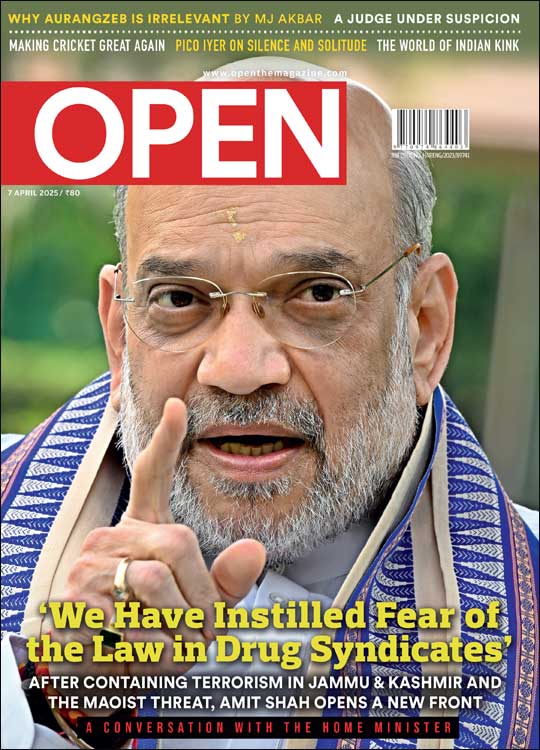
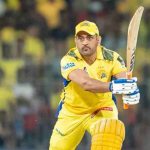

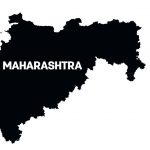
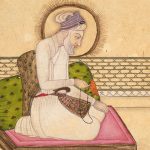

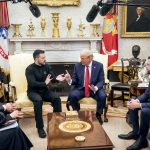

More Columns
Why CSK Fans Are Angry With ‘Thala’ Dhoni Short Post
What’s Wrong With Brazil? Sudeep Paul
A Freebie With Limitations Madhavankutty Pillai